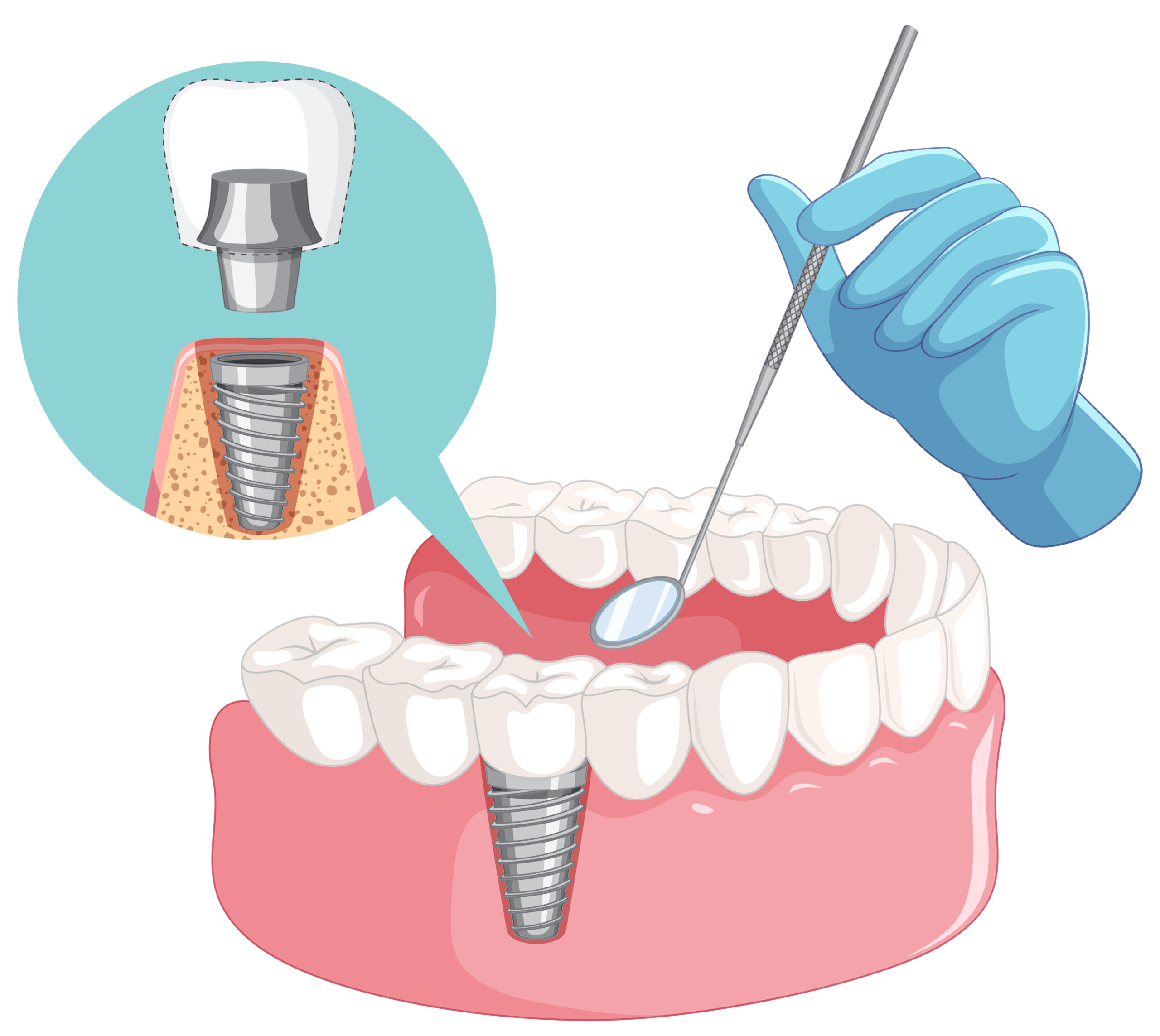Dental implants have revolutionized the field of dentistry, providing a permanent solution for missing teeth. If you’re considering dental implants, it’s natural to have questions about the procedure and its benefits. In this comprehensive FAQ guide, we will address the most common questions asked by patients regarding dental implants. From understanding what a dental implant is to the longevity of the implants, we will cover it all. Let’s dive in!
1. What is a Dental Implant?
A dental implant is a titanium or titanium alloy anchor that is surgically placed into the jawbone. This anchor acts as an artificial tooth root, providing a sturdy foundation for a replacement tooth. Once the implant is firmly integrated with the jawbone, a prosthetic tooth is attached to it, restoring the aesthetics and functionality of a natural tooth.
2. Am I a Candidate for Dental Implants?
In general, most individuals are suitable candidates for dental implants. Good overall health and sufficient jawbone density are the primary requirements. However, certain medical conditions such as uncontrolled diabetes or heavy smoking may affect the success of the implantation process. It’s important to consult with your dentist to determine if dental implants are the right option for you.
3. What are the Benefits of Dental Implants?
Dental implants offer numerous advantages over traditional tooth replacement options. They provide a natural-looking and durable solution for missing teeth, enhancing both aesthetics and functionality. Unlike dentures or bridges, implants are permanent fixtures and do not require removal for cleaning. Additionally, dental implants help to preserve bone density and prevent the shifting of adjacent teeth.
4. How Long Do Dental Implants Last?
With proper care and regular dental check-ups, dental implants can last a lifetime. The success rate of dental implants is exceptionally high, with studies showing a success rate of over 95% after ten years. Maintaining good oral hygiene, including regular brushing, flossing, and professional cleanings, is crucial for the long-term success of dental implants.
5. What is the Dental Implant Procedure Like?
The dental implant procedure typically involves three stages. First, the implant anchor is surgically placed into the jawbone. This stage requires local anesthesia, and the discomfort is minimal. After a healing period of several months, during which the implant fuses with the jawbone, an abutment is attached to the implant. Finally, a custom-made prosthetic tooth is securely placed onto the abutment, completing the restoration.
6. Does the Dental Implant Procedure Cause Pain?
During the implant procedure, local anesthesia is administered to numb the area, ensuring a pain-free experience. After the surgery, some discomfort and swelling may occur, but this can be managed with over-the-counter pain medication. Your dentist will provide instructions for post-operative care to help minimize any discomfort.
7. How Do I Care for Dental Implants?
Caring for dental implants is similar to caring for natural teeth. Regular brushing, flossing, and using antimicrobial mouthwash are essential for maintaining oral hygiene. It’s important to attend regular dental check-ups for professional cleanings and thorough examinations of your implants. Avoiding tobacco products and maintaining a healthy lifestyle will also contribute to the long-term success of your implants.
8. Can Dental Implants Fail?
While dental implant failure is rare, it is possible in some cases. Factors such as poor oral hygiene, smoking, uncontrolled diabetes, or inadequate bone density can increase the risk of implant failure. However, with proper care and regular dental visits, the success rate of dental implants is very high.
9. Are Dental Implants Expensive?
The cost of dental implants may vary depending on several factors, including the number of implants needed and the complexity of the case. While dental implants may have a higher initial cost compared to other tooth replacement options, they are a long-term investment in your oral health. Dental implants offer superior durability and aesthetics, making them a cost-effective solution in the long run.
10. Can Dental Implants Replace Multiple Teeth?
Yes, dental implants can be used to replace multiple missing teeth. Depending on the situation, a single implant can support multiple prosthetic teeth using a dental bridge. Alternatively, implant-supported dentures or full-arch implants can be used for patients who have lost most or all of their teeth. Your dentist will evaluate your specific case and recommend the most appropriate treatment plan.
Conclusion
Dental implants are a remarkable solution for individuals seeking a permanent and natural-looking replacement for missing teeth. With their high success rate and long-term durability, dental implants offer a transformative impact on oral health and quality of life. If you have any further questions or concerns about dental implants, consult with your dentist, who can provide personalized advice and guidance tailored to your specific needs. Don’t let missing teeth hold you back – dental implants can restore your smile and confidence for a lifetime.

